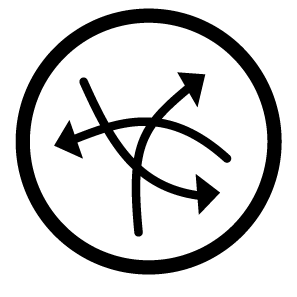Het begin!
© Bantam Books / Bantam Classics, 1849/1989.
^ Terug naar boven
Algemeen
• ‘A Week on the Concord and Merrimack Rivers’ (1849) (61 pp.): de schrijver brengt een week door op de rivieren de Concord en de Merrimack;
• ‘Civil Disobedience’ (1848) (21 pp.): wat is het nut van regeren, van regeringen en van burgerlijke ongehoorzaamheid?
• ‘Life without Principle’ (1863) (23 pp.): sommige mensen zien het ontbreken van productiviteit (zoals het resultaat van hard werken) als luiheid – de schrijver ziet dat toch anders;
• ‘The Maine Woods’ (1864) (33 pp.): de schrijver reist met drie vrienden en een Indiaanse gids door de uitgestrekte wouden van de staat Maine;
• ‘Cape Cod’ (1865) (13 pp.): Thoreau bezoekt Cape Cod: hij reist naar Boston en vertrekt vandaar met een boot naar het prachtige schiereiland;
• ‘The Journal’ (1906) (17 pp.): Henry David Thoreau noteert allerlei zaken in zijn dagboek waar hij later uit put bij zijn langere geschriften en zijn essays en lezingen.
^ Terug naar boven
Boekinformatie
ERK Niveau:
C2Schrijver:
Henry David ThoreauJaar van uitgave:
1849Aantal pagina's:
190Tijd waarin het verhaal zich afspeelt:
1850-1900Plaats van handeling:
USA (Maine, Massachusetts, New Hampshire)Bijzonderheden:
Een verzameling non-fictie teksten.^ Terug naar boven
Het boek - onderwerp
IS HET BOEK VOOR JOU INTERESSANT?
De Amerikaanse filosoof/natuurliefhebber/schrijver Henry David Thoreau schreef veel non-fictie: naast Walden was dat een aantal essays. Veel van die essays zijn verzameld in de bundel ‘Other Writings’.
WAT MOET JE WETEN?
‘Other Writings’ gaat over de thema’s die Mr. Thoreau bezighielden: (overleven in) de natuur, (werken aan) natuurbehoud, nadenken en schrijven over de natuur en over de plek van de mens in die natuur. Vroeger – halverwege de negentiende eeuw begon hij daarover te schrijven – was dit een vreemd plan: tegenwoordig zien we Henry David Thoreau als één van de eerste milieubewuste aardbewoners.
^ Terug naar boven
Het boek - Moeilijkheid
DE TAAL
De taal van ‘Other Writings’ is vaak lastig. Soms schrijft Mr. Thoreau filosofisch, soms gebruikt hij lastige woorden, vaak zijn de alinea’s lang. Toch worden zijn ideeën op zo’n originele manier uitgewerkt dat het lezen van deze essays echt de moeite waard is.
DE TAAL EN HET VERHAAL
Qua taal zijn de essays niet eenvoudig.
Dat geldt minder voor de inhoud van de essays. Die zijn zonder meer boeiend te noemen. Er komen vragen aan de orde als: wat doen wij als mensen in deze natuur, wat zouden we moeten doen in/aan deze natuur, hoe ziet de wereld er anno 1840-1910 uit?
Op basis van deze eigenschappen is ‘Walden’ een boek met een literair niveau C 5e en een taal-(ERK-)niveau C2.
Schrijfstijl:
De essays zijn mooi geschreven, met veel interessante opvattingen en ideeën. In de meeste essay citeert Thoreau tevens Amerikaanse dichters.
^ Terug naar boven
Het boek - het verhaal
Actie:
‘Other Writings’ bevat essays met weinig actie.
Tijd:
De gebeurtenissen in de verzameling essays spelen zich af in de jaren 1840-1910.
Plaats:
De setting van ‘Other Writings’ is het noordoosten van de USA, het gebied dat we kennen als New England – met nadruk op de staten Maine, Massachusetts en New Hampshire.
Verhaallijn:
Er zijn veel verschillende verhaallijnen in ‘Other Writings’.
Verteller:
De verzameling essays heeft een ik-verteller wat soms zorgt voor een onbetrouwbaar perspectief.
^ Terug naar boven
Het boek - de karakters
Hoofdkarakters:
De hoofdkarakters in ‘Other Writings’ zijn:
• ‘A Week on the Concord and Merrimack Rivers’: de ik-verteller en zijn broer John;
• ‘Civil Disobedience’: politici;
• ‘Life without Principle’: de ik-verteller;
• ‘The Maine Woods’: de ik-verteller;
• ‘Cape Cod’: de ik-verteller;
• ‘The Journal’: de ik-verteller;
Bijfiguren:
De belangrijkste bijfiguren in ‘Other Writings’ zijn:
• ‘A Week on the Concord and Merrimack Rivers’: geen;
• ‘Civil Disobedience’: staatsburgers van de USA;
• ‘Life without Principle’: geen;
• ‘The Maine Woods’: drie vrienden van de schrijver en een Indiaanse gids;
• ‘Cape Cod’: vrienden van de schrijver;
• ‘The Journal’: geen.
^ Terug naar boven
Het boek - verder
Film:
De essays van ‘Other Writings’ zijn niet verfilmd.
Overig:
‘Other Writings’ zijn essays die voor een deel zijn uitgeschreven nadat ze als colleges of lezingen werden gegeven.
^ Terug naar boven
Auteur en Werken
Link naar pagina over auteur
-->Informatie over Henry David Thoreau.^ Terug naar boven
Meer
Leessuggesties:
Als je dit een mooi boek vond, zou je ook kunnen lezen:
• Walden van Henry David Thoreau
• The Road to Wigan Pier van George Orwell
• Educated van Tara Westover
Citaat:
I heartily accept the motto ‘That government is best which governs least’; and I should like to see it acted up to more rapidly and systematically. Carried out, it finally amounts to this, which also I believe, ‘That government is best which governs not at all.’ (From: 'Life without Principle', p.85)Vragen over het boek:
Geef de voornaamste conclusies weer van de onderstaande essays:
1. ‘Civil Disobedience’
2. ‘Life without Principle’
3. ‘The Maine Woods’
4. ‘The Journal’
^ Terug naar boven

Comments are closed.